July 19, 2017 •
Missouri Ethics Commission Issues Advisory Opinion Regarding Corporate Contributions to PACs
The Missouri Ethics Commission recently issued an advisory opinion clarifying campaign finance rules for corporations seeking to contribute to PACs. Currently, a corporation may not contribute its own funds to its connected PAC, but it may contribute direct corporate funds […]
 The Missouri Ethics Commission recently issued an advisory opinion clarifying campaign finance rules for corporations seeking to contribute to PACs.
The Missouri Ethics Commission recently issued an advisory opinion clarifying campaign finance rules for corporations seeking to contribute to PACs.
Currently, a corporation may not contribute its own funds to its connected PAC, but it may contribute direct corporate funds to an unconnected PAC. The new opinion provides additional guidance on whether a corporation and a PAC are considered connected for the purpose of campaign finance law.
If contributions to a PAC are from a corporation’s general treasury, and not from the corporation’s officers, employees, or spouses thereof, it is possible the PAC is not connected to the organization. In such a scenario, if the corporation does not expend funds or provide services or facilities to administer or maintain the PAC, and it does not expend funds or provide services to solicit contributions to the PAC from its members, officers, directors, employees, or security holders, it is not a connected organization. This is true even when the PAC is funded 100 percent by a corporation’s general treasury funds.
Moreover, assuming the corporation did not establish the PAC and does not serve as a connected organization, it may make unlimited monetary contributions from the corporate treasury.
Parts of a campaign finance law approved by Missouri voters in November have been ruled unconstitutional. U.S. District Court Senior Judge Ortrie Smith issued a ruling Friday finding corporations and labor organizations must be permitted to make contributions to campaign […]
 Parts of a campaign finance law approved by Missouri voters in November have been ruled unconstitutional.
Parts of a campaign finance law approved by Missouri voters in November have been ruled unconstitutional.
U.S. District Court Senior Judge Ortrie Smith issued a ruling Friday finding corporations and labor organizations must be permitted to make contributions to campaign committees only supporting or opposing ballot measures, and political action committees must be able to receive contributions from other political action committees.
The court also ruled the ban on contributions to PACs by heavily regulated entities unconstitutional.
Finally, the ruling permanently enjoins the Missouri Ethics Commission from interpreting certain campaign finance provisions in any manner inconsistent with previously issued advisory opinions. Contribution limits will continue to apply only to contributions to candidates unless a contribution to a continuing committee or PAC is restricted or designated for a specific candidate.
The court stayed any injunctive relief ordered for 45 days to allow the state to review the ruling and to allow for an opportunity to appeal.
March 28, 2017 •
Kentucky’s Governor Signs Campaign Finance Bill
Gov. Matt Bevin approved changes to a campaign finance law yesterday, March 27, 2017. Senate Bill 75 doubles current contribution limits for individuals giving to candidates, state executive committees, and caucus campaign committees. The limit for individuals giving to PACs […]
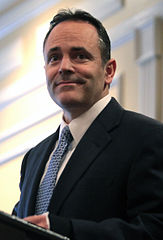 Gov. Matt Bevin approved changes to a campaign finance law yesterday, March 27, 2017.
Gov. Matt Bevin approved changes to a campaign finance law yesterday, March 27, 2017.
Senate Bill 75 doubles current contribution limits for individuals giving to candidates, state executive committees, and caucus campaign committees. The limit for individuals giving to PACs also increases from $1,500 to $2,000.
Contributions to candidates and PACs will be indexed for inflation every odd-numbered year based on the Consumer Price Index. The bill also creates a single reporting threshold of $3,000 for campaign finance reports.
The bill is effective June 28, 2017, or 90 days from adjournment sine die of the regular session of the Legislature.
March 28, 2017 •
West Virginia Campaign Finance Bill Passes Senate
On March 27, the West Virginia Senate voted to approve a bill to overhaul campaign finance laws. Senate Bill 539 will raise campaign contribution limits to allow individuals to donate up to $2,700 to candidates for statewide office per election […]
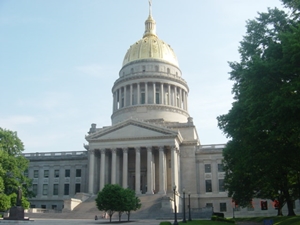 On March 27, the West Virginia Senate voted to approve a bill to overhaul campaign finance laws.
On March 27, the West Virginia Senate voted to approve a bill to overhaul campaign finance laws.
Senate Bill 539 will raise campaign contribution limits to allow individuals to donate up to $2,700 to candidates for statewide office per election cycle. Individuals would also be able to contribute up to $5,000 to PACs per year and $10,000 to state parties and caucus campaign committees per year.
The bill also proposes changes to disclosure requirements, allowing citizens to donate up to $1,000 to certain PACs that do not donate to individual candidates or their committees before the donor’s identity must be disclosed.
The bill now moves to the House for consideration.
March 15, 2017 •
Kentucky Lawmakers Pass Campaign Finance Bill
The Kentucky Legislature passed a bill this week to double the limits on contributions from individuals and PACs to candidates, state executive committees, and caucus campaign committees. Senate Bill 75, according to supporters, provides greater transparency and will make it […]
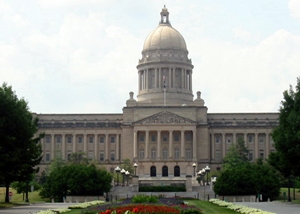 The Kentucky Legislature passed a bill this week to double the limits on contributions from individuals and PACs to candidates, state executive committees, and caucus campaign committees.
The Kentucky Legislature passed a bill this week to double the limits on contributions from individuals and PACs to candidates, state executive committees, and caucus campaign committees.
Senate Bill 75, according to supporters, provides greater transparency and will make it easier for everyday citizens to compete with dark money while running for office.
Opponents, however, believe the focus should be on curbing dark money and adding more money to the equation will further erode public trust.
Nonetheless, the bill will now be sent to the governor for review.
February 28, 2017 •
Ohio Secretary of State Raises Campaign Contribution Limits
The Ohio Secretary of State Campaign Finance Division recently released revised contribution limits. The new limits are effective February 25, 2017, through February 24, 2019. Among the changes, the limit individuals, political action committees (PACs), and political contributing entities (PCEs) […]
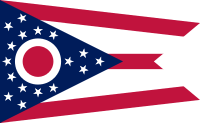 The Ohio Secretary of State Campaign Finance Division recently released revised contribution limits. The new limits are effective February 25, 2017, through February 24, 2019.
The Ohio Secretary of State Campaign Finance Division recently released revised contribution limits. The new limits are effective February 25, 2017, through February 24, 2019.
Among the changes, the limit individuals, political action committees (PACs), and political contributing entities (PCEs) may give to statewide or state legislative candidates increased from $12,532.34 per election period to $12,707.79 per election period.
The secretary of state adjusts statutory contribution limits in each odd-numbered year based on the Consumer Price Index.
February 15, 2017 •
Missouri Ethics Commission Issues Advisory Opinions Regarding Constitutional Amendment 2
The Missouri Ethics Commission recently released a series of advisory opinions related to Constitutional Amendment 2. The amendment, passed by the voters in the November election, amended state campaign finance laws. The new advisory opinions address issues not fully articulated […]
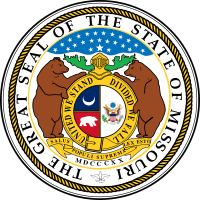 The Missouri Ethics Commission recently released a series of advisory opinions related to Constitutional Amendment 2. The amendment, passed by the voters in the November election, amended state campaign finance laws.
The Missouri Ethics Commission recently released a series of advisory opinions related to Constitutional Amendment 2. The amendment, passed by the voters in the November election, amended state campaign finance laws.
The new advisory opinions address issues not fully articulated in the constitutional amendment. Opinions confirm: contribution limits do not apply to local candidates; the definitions of continuing and political action committees are substantially the same and are interpreted to be the same; and contribution limits only apply to continuing or political action committees if a contribution to the committee is designated for a specific candidate.
Another opinion finds a limited liability company to be a corporation for the purpose of the corporate contribution ban if the LLC is an eligible entity electing to be classified as a corporation under the federal tax code.
Other opinions relate to the eligibility of foreign corporations contributing to Missouri PACs, the application of the $25,000 per election aggregate limit to be received by a political party, and the applicability of contribution limits to state legislative campaign committees.
January 23, 2017 •
Joint Committee Formed to Improve Vermont’s Campaign Finance Rules
Attorney General TJ Donovan and Sec. of State Jim Condos announced the creation of a joint Committee on Campaign Finance Education, Compliance, and Reform. The committee’s goal is to encourage a greater level of knowledge to facilitate compliance and to […]
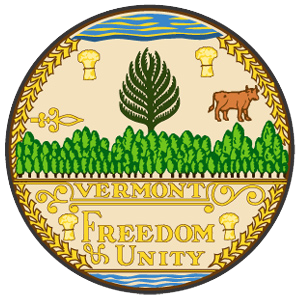 Attorney General TJ Donovan and Sec. of State Jim Condos announced the creation of a joint Committee on Campaign Finance Education, Compliance, and Reform.
Attorney General TJ Donovan and Sec. of State Jim Condos announced the creation of a joint Committee on Campaign Finance Education, Compliance, and Reform.
The committee’s goal is to encourage a greater level of knowledge to facilitate compliance and to seek out areas where Vermont’s current law could be improved. A series of public forums will be held to seek input from citizens of the state, including elected officials, PACs, and parties.
This input will assist the committee toward creating more robust campaign finance rules.
November 22, 2016 •
Transparency Bills Filed for Arkansas 2017 Session
Since pre-filing began for the 2017 Arkansas legislative session, multiple measures have been introduced regarding lobbying, ethics and campaign finance. If passed, measures introduced in the House would require reporting and disclosure of electioneering communications and covered transfers (House Bill […]
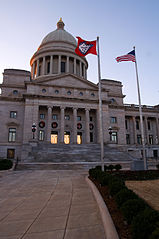 Since pre-filing began for the 2017 Arkansas legislative session, multiple measures have been introduced regarding lobbying, ethics and campaign finance.
Since pre-filing began for the 2017 Arkansas legislative session, multiple measures have been introduced regarding lobbying, ethics and campaign finance.
If passed, measures introduced in the House would require reporting and disclosure of electioneering communications and covered transfers (House Bill 1005), prevent a member of the General Assembly from forming more than one political action committee (PAC) as either a registered agent or an officer (House Bill 1009), require the Secretary of State to make independent expenditures and PAC reports public (House Bill 1010), prohibit PAC-to-PAC transfers (House Bill 1011) and ban direct contributions to candidates from PACs (House Bill 1012). Several measures introduced in the Senate mirror the House bills.
Additionally, bills introduced in the Senate would bar soliciting or accepting campaign contributions before the expiration of the immediately preceding general election (Senate Bill 2), prohibit elected officials from registering as a lobbyist while serving as an elected state official (Senate Bill 3) and ban constitutional officers, like the governor, from soliciting or accepting loans from lobbyists (Senate Bill 7).
July 12, 2016 •
Tuesday Lobbying and Campaign Finance News Update
Lobbying “In Brussels and London, Lobbyists Retool for Brexit Unknowns” by Quentin Ariès and Kalina Oroschakoff for Politico Pennsylvania: “Consulting Business Owned by Mike Fleck Fined $11,850 by State” by Emily Opilo for Allentown Morning Call Campaign Finance Colorado: “Political […]
 Lobbying
Lobbying
“In Brussels and London, Lobbyists Retool for Brexit Unknowns” by Quentin Ariès and Kalina Oroschakoff for Politico
Pennsylvania: “Consulting Business Owned by Mike Fleck Fined $11,850 by State” by Emily Opilo for Allentown Morning Call
Campaign Finance
Colorado: “Political Consultant Files Legal Challenge to Stop Denver Campaign Finance Reform Proposal” by Jon Murray for Denver Post
Maine: “Top Legislators’ PACs Reap Thousands from Key Donors” by Colin Woodard for Portland Press Herald
Montana: “Review of Montana’s Political Party Committees Underway, Some Will Be Reclassified” by Troy Carter for Bozeman Daily Chronicle
Washington: “Supporters of Campaign Finance Measure Submit Signatures” by Rachel La Corte (Associated Press) for Yakima Herald
Ethics
California: “Beaumont, Stunned by Years of Alleged Corruption, Has Been ‘Turned Upside Down’” by Paloma Esquivel for Los Angeles Times
New Mexico: “Former Sen. Phil Griego to Face Trial on Nine Corruption Charges” by Dan Boyd for Albuquerque Journal
Virginia: “Crime Commission Attorney Named New Director of Va. Ethics Council” by Graham Moomaw for Richmond Times-Dispatch
Elections
“Donald Trump and Hillary Clinton Struggle to Be Unifying Voice for Nation” by Patrick Healy for New York Times
February 12, 2016 •
DNC Now Accepting Contributions from Lobbyists and PACS
Political contributions from federal lobbyists and political action committee (PACs) are now being accepted by the Democratic National Committee (DNC). A self-imposed ban on receiving contributions from lobbyists and PACs began in 2008 during the presidential campaign. Lobbyists and PAC […]
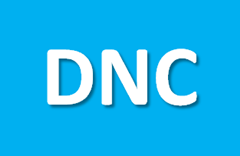 Political contributions from federal lobbyists and political action committee (PACs) are now being accepted by the Democratic National Committee (DNC). A self-imposed ban on receiving contributions from lobbyists and PACs began in 2008 during the presidential campaign. Lobbyists and PAC representatives are still prohibited from attending events featuring the president or vice-president or their spouses, according to The Hill.
Political contributions from federal lobbyists and political action committee (PACs) are now being accepted by the Democratic National Committee (DNC). A self-imposed ban on receiving contributions from lobbyists and PACs began in 2008 during the presidential campaign. Lobbyists and PAC representatives are still prohibited from attending events featuring the president or vice-president or their spouses, according to The Hill.
Mark Paustenbach, deputy communications director for the DNC, explained the change to The Washington Post by saying, “The DNC’s recent change in guidelines will ensure that we continue to have the resources and infrastructure in place to best support whoever emerges as our eventual nominee.” Last year it was announced the DNC would accept contributions from lobbyists and PACs for its party conventions.
February 10, 2016 •
FEC Adds Memo Item to Disclosure Forms
The Federal Election Commission (FEC) has updated some of its disclosure forms required by PACs, political parties, and campaigns. Specifically, the FEC has added a “memo item” box to Forms 3, 3P, and 3x. Formerly, committees would routinely write the […]
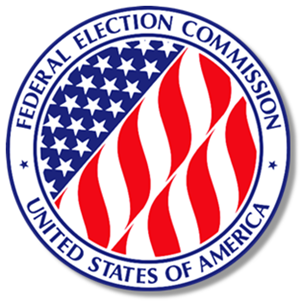 The Federal Election Commission (FEC) has updated some of its disclosure forms required by PACs, political parties, and campaigns. Specifically, the FEC has added a “memo item” box to Forms 3, 3P, and 3x. Formerly, committees would routinely write the phrase “memo item” on the form. The new box, which the FEC hopes increases “reporting clarity”, can be used to report supplemental information and the expense amounts not included in the line item total, such as reattributions, reimbursements, and certain credit card transactions. The FEC believes the new box will shorten document processing time and allow public access to disclosed data faster, according to the FEC’s press release.
The Federal Election Commission (FEC) has updated some of its disclosure forms required by PACs, political parties, and campaigns. Specifically, the FEC has added a “memo item” box to Forms 3, 3P, and 3x. Formerly, committees would routinely write the phrase “memo item” on the form. The new box, which the FEC hopes increases “reporting clarity”, can be used to report supplemental information and the expense amounts not included in the line item total, such as reattributions, reimbursements, and certain credit card transactions. The FEC believes the new box will shorten document processing time and allow public access to disclosed data faster, according to the FEC’s press release.
January 8, 2016 •
Michigan Governor Signs Senate Bill 571
This week, Governor Snyder signed Senate Bill 571, a bill that affects what public officials and organizations can and cannot do within 60 days of an election. The bill prohibits local officials from publicly discussing ballot proposals or millage issues […]
 This week, Governor Snyder signed Senate Bill 571, a bill that affects what public officials and organizations can and cannot do within 60 days of an election. The bill prohibits local officials from publicly discussing ballot proposals or millage issues in the 60 days leading up to an election.
This week, Governor Snyder signed Senate Bill 571, a bill that affects what public officials and organizations can and cannot do within 60 days of an election. The bill prohibits local officials from publicly discussing ballot proposals or millage issues in the 60 days leading up to an election.
Despite approving the bill, Snyder urged the Legislature to pass further legislation clarifying some key provisions of the bill that some say infringe on protected free political speech. The 53 page bill was originally much shorter until last minute amendments were passed with no public hearings. Senate Bill 571 also eliminates the need for February quarterly reports for political action committees.
September 9, 2014 •
Judge Enjoins Enforcement of Wisconsin Candidate Limits
A federal judge entered a preliminary injunction in favor of a conservative group challenging the state’s limits on the amount candidates can collect from political action committees. The group argued the limits infringed upon its First Amendment free speech rights. […]
 A federal judge entered a preliminary injunction in favor of a conservative group challenging the state’s limits on the amount candidates can collect from political action committees. The group argued the limits infringed upon its First Amendment free speech rights.
A federal judge entered a preliminary injunction in favor of a conservative group challenging the state’s limits on the amount candidates can collect from political action committees. The group argued the limits infringed upon its First Amendment free speech rights.
The judge agreed and issued a preliminary injunction preventing the Government Accountability Board from enforcing the limit.
State and Federal Communications, Inc. provides research and consulting services for government relations professionals on lobbying laws, procurement lobbying laws, political contribution laws in the United States and Canada. Learn more by visiting stateandfed.com.

